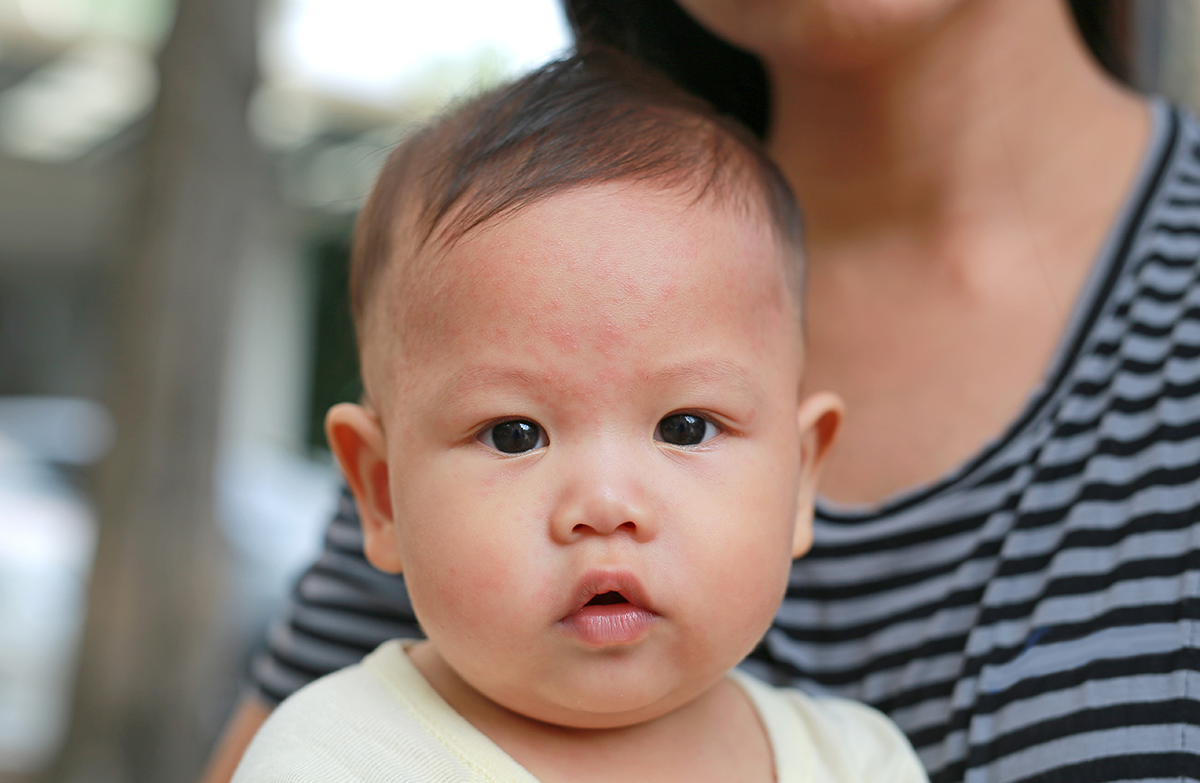
08 Jan Food Allergies 101
3 min. readEvery parent wants to keep their child safe and healthy. This is why it can be quite frightening when you think your child may be having an allergic reaction. Food allergies are extremely common among children, and little ones are obviously unable to communicate issues regarding their reaction to certain foods—this is why, as a parent, you need to be on the lookout for food allergies.
The majority of food allergies are diagnosed during early childhood. So, chances are, if your child is going to have a food allergy, it is going to show up when your child is quite young. The incidence of food allergies has been on the rise over the last 50 years. While no parent ever wants their child to have a food allergy, it is essential to know the signs and symptoms of allergic reactions, in case your child starts exhibiting food-related allergic reactions.
What Are the Symptoms of an Allergic Reaction?
Depending on the child and the type of reaction they are having, different kids may showcase different symptoms. These are some of the mild symptoms that you may notice if your child is having a mild allergic reaction:
- Sneezing, nasal congestion or a runny nose
- Small dry coughs
- Strange taste in the mouth or itchy mouth
- Nausea, vomiting, stomach pain
- Itching in the ear canal
- Eczema or persistent, dry, itchy rashes
- Hives
There are also some more severe symptoms that can occur when a child is experiencing a severe food allergy. These are the times when seeking immediate medical attention, possibly calling 911, are indicated. This includes but is not limited to:
- Trouble swallowing
- Swelling of the tongue, throat or lips
- Wheezing, or difficulty breathing
- A child’s face or body turning blue
- Feeling weak or confused
- Feeling faint or passing out and losing consciousness
- Chest pain
- Panic or anxiety
How Do Children Typically React to Allergic Reactions?
Sometimes, it is easy to see the physical symptoms of an allergic reaction, but in other situations, it may not be as obvious. Parents should also pay attention to how their child is reacting. Small children may put their hands in their mouths or play with and scratch at their tongue. Little kids may also cry, be afraid or pull at their ears—or have a slurred speech from a swollen tongue.
Older kids may tell you that their tongue is hot, burning, tingling or itchy. They may also feel like their mouth or throat feels “funny” or heavy or their lips feel tight. They may also think that food that isn’t typically spicy tastes or feels spicy. These are all indications that your child is allergic to certain foods.
The more you know about food allergies, the more prepared you will be to get your child the help they need—should they end up with a food allergy. Of course, if you have questions about food allergies or are worried that your child may be suffering from food allergies, simply call us here at Continuum Pediatrics at 817-617-8600 to schedule an appointment.

